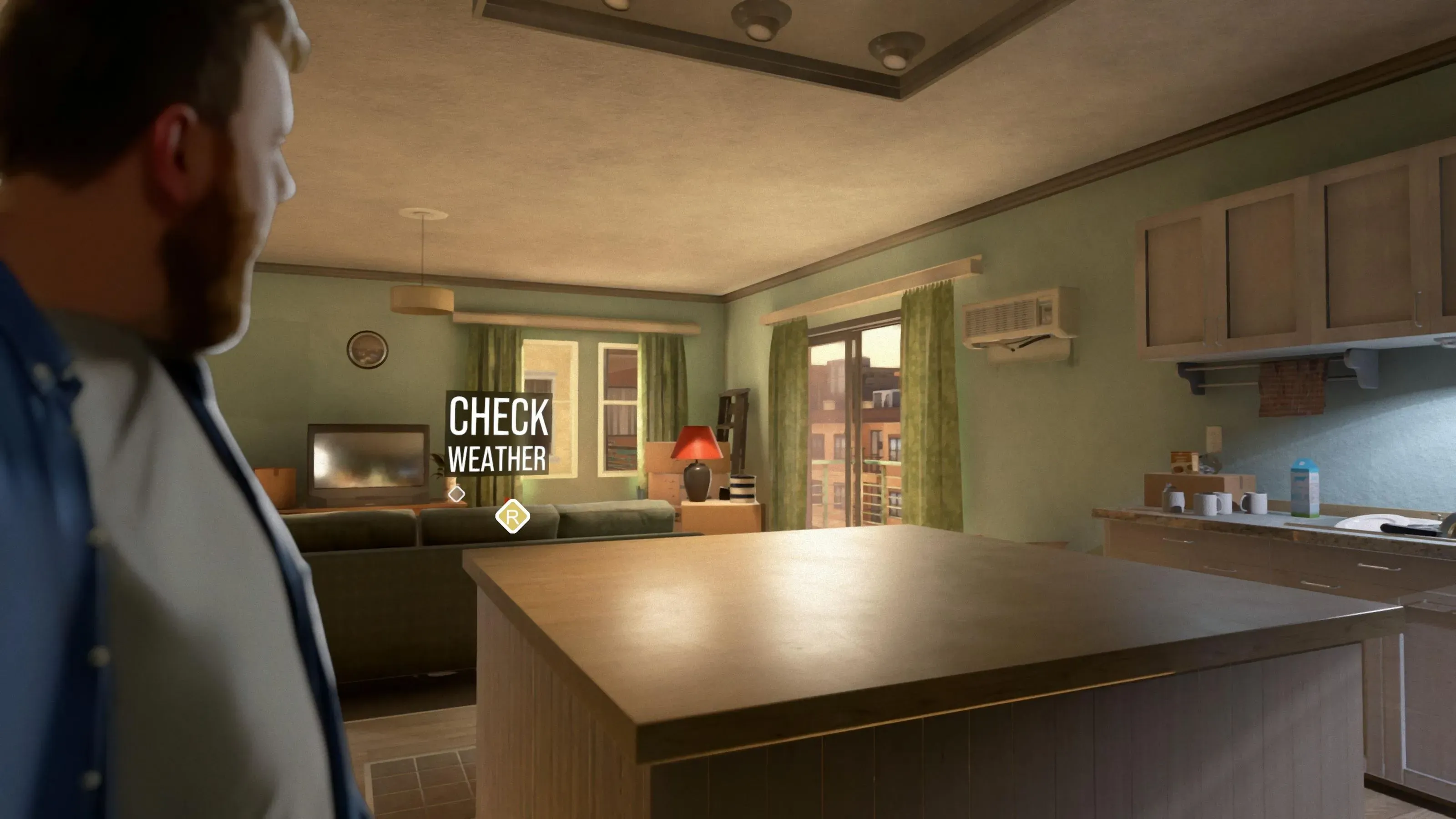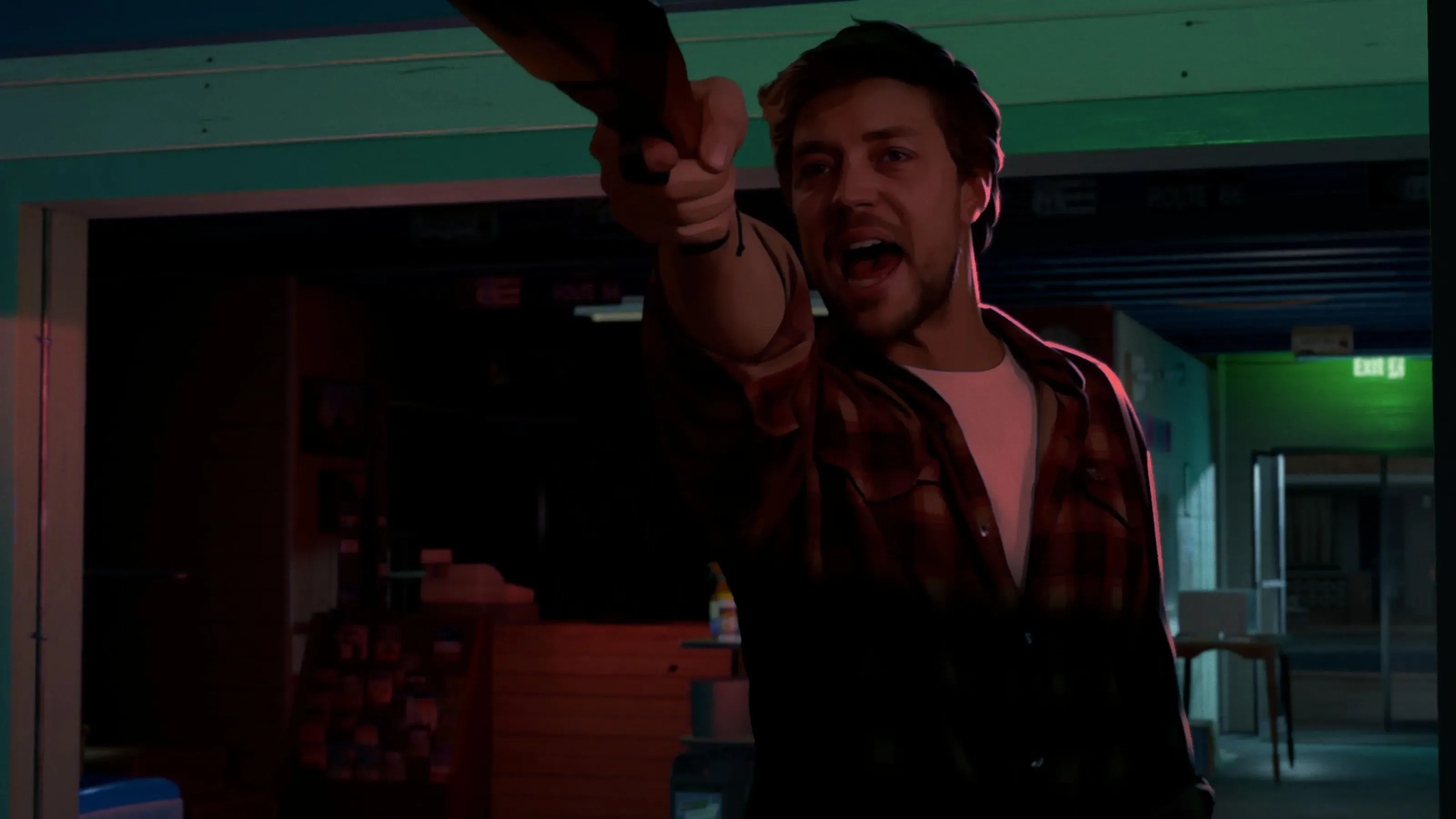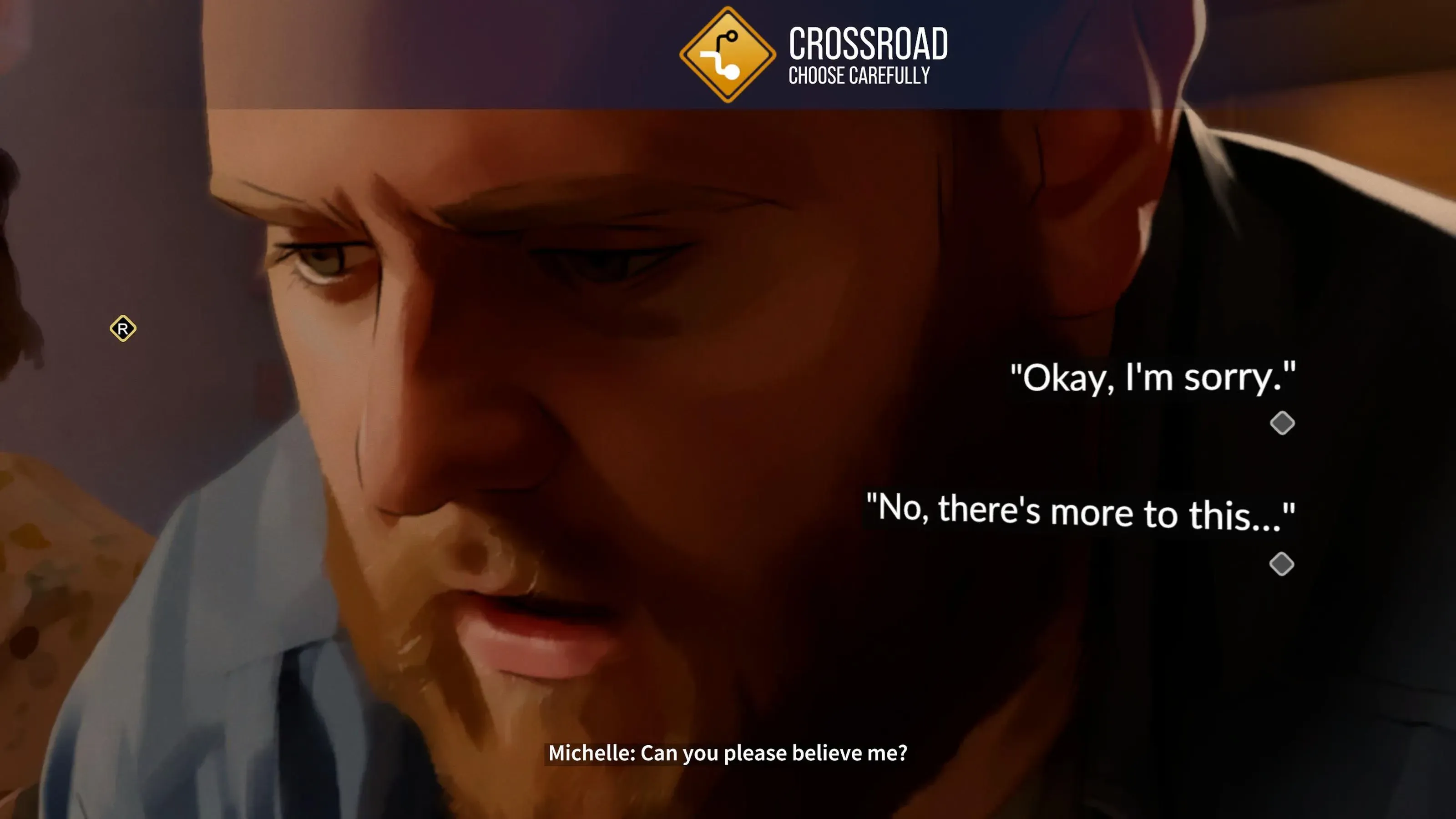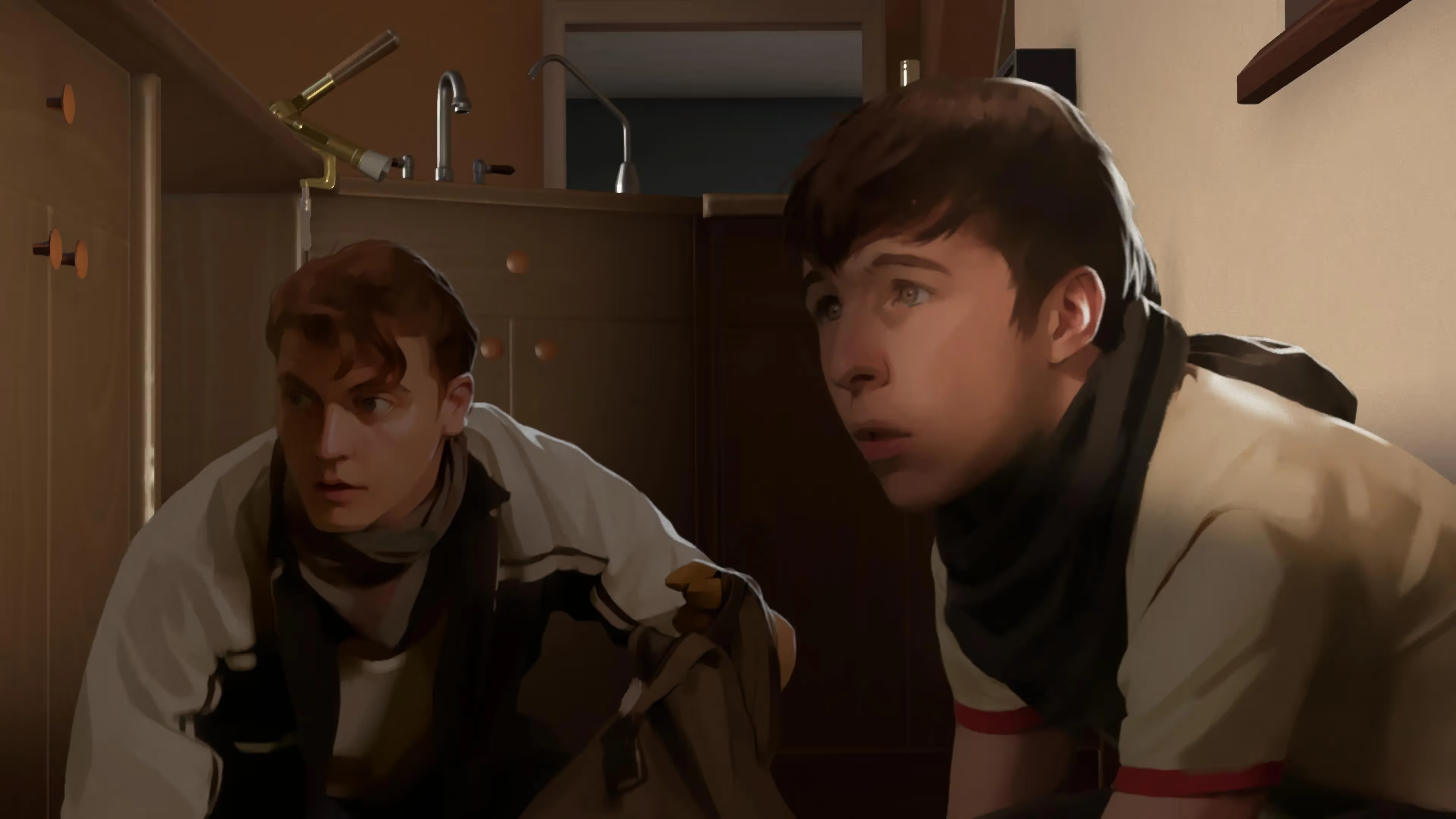PS5
PC
PS4
Xbox One
Xbox Series
The illusion of choice is where storytelling in gaming has historically fallen down. Intricately crafted tales might give the player the feeling that what they decide matters. Yet when the credits roll, more often than not it feels like you’ve either been funneled into one of two or three endings and the decisions taken to reach your chosen conclusion have been given mere lip service. Telltale, Don’t Nod and Quantic Dream have all tried to provide branching storylines culminating in different endings across their respective franchises. In most cases, the games have cracking stories to tell, but the feeling of impactful choice has been mixed.
It’s telling, then, that As Dusk Falls comes from Interior/Night, a studio made up of ex-Quantic Dream staff. Away from the control of controversial founder David Cage, the game is not only a fantastic character-driven crime drama, but one that finally feels like your choices are recognised.

Arizona is the setting for a collision between two families. One features a father, mother, daughter and grandfather on a road trip, the other comprises three brothers setting out to burgle the house of a local sheriff. When the two groups inadvertently cross paths at a motel, a series of events are set in motion that will have long-lasting consequences for all concerned.
The first thing you’ll notice is the art style which is unlike anything you’ll have seen before. Rather than animated character models, the game deploys over 15,000 hand-crafted frames to capture the facial expressions of its cast. Conversations and narration happen over the top of these frames, so you’ll see their features change as a new frame is presented, but without any animation of their mouths. It might seem odd — and it does take a few scenes to get used to — but you’ll soon find it as absorbing as an episode of a great TV thriller, like Breaking Bad.

This feels like an appropriate comparison, because the game is dark. There are references to murder, suicide, drug use, depression and more over the course of its six chapters. The viewpoint flits between characters throughout — usually two per chapter — and the timeline flashes back and forth to provide backstory and motivation which tries to make sense of how and why events escalate. This all contributes to a remarkably nuanced story which takes its time with pacing and only veers into melodrama on the rarest of occasions. There are some slightly unbelievable plot developments, such as one character remembering another after a single encounter two decades earlier, but on the whole the writing and dialogue feels natural throughout.

But what of the gameplay? Primarily, you’ll be making choices about how to respond either to conversations or to events. These may be minor, or have far-reaching consequences. Important choices are labelled as a “crossroad”, of which the “outcome” might not be apparent until later in the chapter, or even much later in the game. The most impressive part of this is that As Dusk Falls has a sprawling decision tree which lets you see the path that your choice has set you on, as well as all of the other alternative decisions that remain locked, similar to Detroit: Become Human. There is an impressive series of concluding scenes available, not just for each chapter, but for the entire game. It encourages replayability to uncover new threads on subsequent playthroughs, helped by the game’s interface which allows you to copy saves at a given point and then make different decisions from available checkpoints.

The other side of the game play involves completing quick time events such as swiping, mashing or circling, while longer ones involve remembering things that happened earlier in the story (although sadly there are only a couple of these). They feel more solidly implemented than in Telltale games, but if you’re not a fan of quick time events in general, As Dusk Falls is probably not going to be the game for you.
Multiplayer co-op is available for up to eight people who can connect on their smartphone and vote on which option to take each time you’re prompted. A number of overrides can be assigned and used if you really want to see a specific outcome, but otherwise it’s a democratic vote. How much this will get used is another matter. The game’s subject matter doesn’t scream “party fun time”, but at least it gives other people in the room the chance to interact with your playthrough if you so wish.

As Dusk Falls also contains a host of accessibility options. Text-to-speech, speech-to-text, an adjustable user interface, accommodations for people with motor impairments and other options are all included. It’s wonderful to see disability being catered for, and it’s something other developers will hopefully take note of. One chapter’s trigger warning does seem a little unnecessary though, given the very start of the game outlines all of the potential triggers. It gives you the option to skip the scene entirely and end it positively, but you could argue that players who have read the synopsis and content are unlikely to be playing the game anyway, and the warning only spoils the story. This is a minor gripe, though.

Voice acting is mostly excellent, and the character expressions are wonderfully captured — with the possible exception of the youngest brother Jay who looks perpetually confused in almost every scene. Some of the characters bear a striking resemblance to other actors. You’ve got Nathan who looks like Zach Galifianakis, middle brother Dale has Rami Malek vibes, Joyce reminded me of Stevie from Schitt’s Creek in basically an identical role, and Sheriff Romero is basically Justified’s Raylan Givens but without the sense of humour. The familiarity is a bit distracting to begin with, but as with the art style in general, it soon washes over you.

I can honestly say I had no idea where the story was going, found the twists and turns to be gripping — if occasionally soapy — and was excited to start the next chapter as soon as I’d finished one. It was disappointing, then, to find the game ends on an unnecessary setup for a sequel. This doesn’t mean the plot lines aren’t tied up effectively. Far from it, the majority of choices led to reasonable and realistic outcomes as far as I was concerned, with only a couple of lesser characters not being addressed. Still, it felt like a case of having and eating your narrative cake; if a sequel or new chapters of DLC had been confirmed and in the works, things might be different. But pitching a leftfield plot twist in the final beats of the game with no idea if it will be realised? It left a bit of a sour note.
That aside, As Dusk Falls is a supremely well crafted crime caper which any fan of narrative gaming should check out. There are so many possible ways to take the story, the replay value far outshines that of its peers, and even the minute-to-minute gameplay is far more interesting. It’s a frankly stonking debut from Interior/Night, establishing them out of the gate as a developer to keep an eye on. Some choices are a lot easier to make than others, but picking up this game is a no-brainer.
You can subscribe to Jump Chat Roll on your favourite podcast players including:
Let us know in the comments if you enjoyed this podcast, and if there are any topics you'd like to hear us tackle in future episodes!


